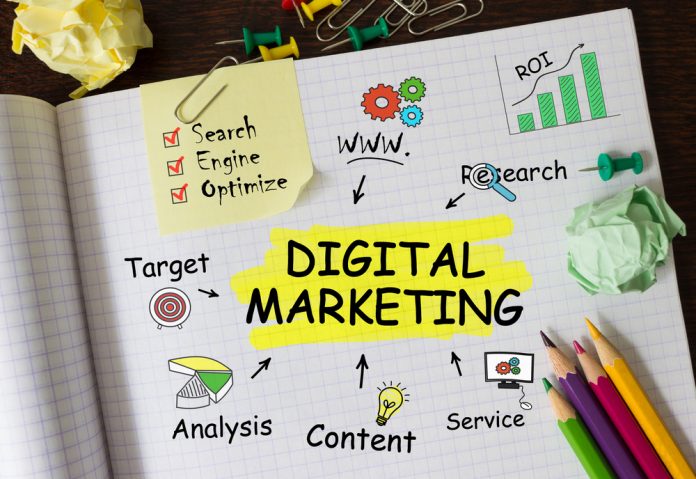Hotels have always been busy, bustling places. Guests come and go at all hours of the day, rooms need to be turned over in preparation for the next travellers and bookings are taken by email, travel agencies and phone.
However, in the 21st century, hotels are being expected to manage all of these details as well as market themselves in an increasingly crowded market. They have to make the most of new channels and digital portals to find new guests and encourage them to book at their property rather than their competitors’. As a result, almost all hotels now have a Hotel digital marketing strategy – and if you don’t, then now is the time to catch up and get one ready for 2017. Whether you have a dedicated marketing team or not, here are some key issues you should focus on moving forward. Improve your website Time passes by so quickly that it can be easy to assume it wasn’t long ago that you last updated your website, but you might be surprised. And if it was a year ago, then the chances are that you need to make some improvements to better impress your visitors and drive bookings.
Ensure you’ve got interesting pictures, concise-yet-tempting room descriptions and package offers that would interest discrete groups of people, whether that’s hikers or yoga enthusiasts. Videos are also a must now that Google rewards them in its search rankings, so show would-be guests exactly what they’ll experience when they come to your hotel. Don’t forget to check your booking engine for glitches too, as this could be costing you vital revenue without you even realising. Manage your reputation online Online reputation management was one of the biggest areas for investment in the hotel industry last year and this doesn’t look set to change any time soon. Keeping on top of what people are saying about your property is vital if you are to keep bookings rolling in and prevent negative comments from having a detrimental impact. It can be difficult to keep on top of multiple channels where people might be chatting about your hotel, so text mining software is becoming increasingly popular and might be worth investing in over the coming months.
Social media monitoring tools will also gather brand mentions and ensure you spot any comments, bad or good. Remember that if they’re good, you can publish them to help you achieve better rankings in Google. Alternatively, manage mentions yourself by publicising hashtags and Twitter handles for people to use when they’re writing about you online. Once you’ve monitored your online chatter, you’ll need to listen, respond appropriately and work towards tailoring guests’ experiences. We’ve written before about responding to reviews and it’s a lengthy topic in itself, so take a look back in our archives if you need any help with this. Consider influencer marketing With the advent of celebrity bloggers and then vloggers, anyone with anything to sell has found themselves with a whole new outlet through which to publicise their wares.
The travel industry is no different and a mention from one of these much-lauded commentators can result in fantastic publicity. Property owners looking for a new hotel internet marketing solution may want to consider pairing up with influencer marketers, especially if they’re targeting the tech-savvy, always-connected millennial generation. For example, they might offer a free stay to a blogger who will come and review a new suite or spa facilities. It doesn’t cost much, but the subsequent review is likely to be worth its weight in gold. Keep working on content and SEO It might no longer be a new method of marketing, but search engine optimisation and content creation continues to be a vital way of attracting new web traffic and boosting bookings.
However, it keeps changing, so it’s essential to keep on top of the latest trends and developments.Use data analysis to continually check what’s working and update strategies based on measurable results. As a bare minimum though, always create content that informs and inspires would-be guests and leads to better user engagement with your website. Not only will this make them more likely to consider a reservation at your property, but it will also send positive messages to search engines thanks to longer web visits and fewer page bounces. Ensure you’re optimised for mobile So many searches now take place on mobile devices that it’s essential for hotels to have a website that is optimised to display properly on them.
It’s better for web users for one thing, but Google’s Mobile-Friendly Algorithm also means that hotels with poor mobile websites are likely to be penalised by appearing lower down the rankings. Again, this is a sizeable topic and one we’ve discussed in detail before (and no doubt will again as new developments arise), so keep an eye on our archives for a more in-depth analysis.Look towards the future of technologyIt can be hard to predict the next big thing in technology, but many new trends are cropping up that could be hugely useful for the hotel industry in the coming years. If anything can help to get more guests through your doors, they might be worth the initial investment.
For example, smart controls that allow guests to manage things like air conditioning via smartphone apps are becoming more prominent and a number of big-name brands have already rolled them out.Millennials in particular may soon come to expect a hotel that is tech-enabled – and could go to your competitors if you’re not.Another big trend is virtual reality, with Trendforce predicting that 38 million virtual reality headsets will be sold worldwide by 2020. We have been promised VR for decades now, but it is really coming into its own thanks to better technology platforms.Hotels could use it by providing virtual tours for guests and allowing them to experience your facilities without leaving the comfort of their own home – it could be an alternative to video.Digital marketing is a huge area to consider, but one which hotel owners must increasingly be on top of in the 21st century. Why not take a look at your strategy and see if you could make any improvements that would better drive revenue?







